Achieving a Sensory Experience
Dorothé Kessels, Head of Vinyl Design
May 2019
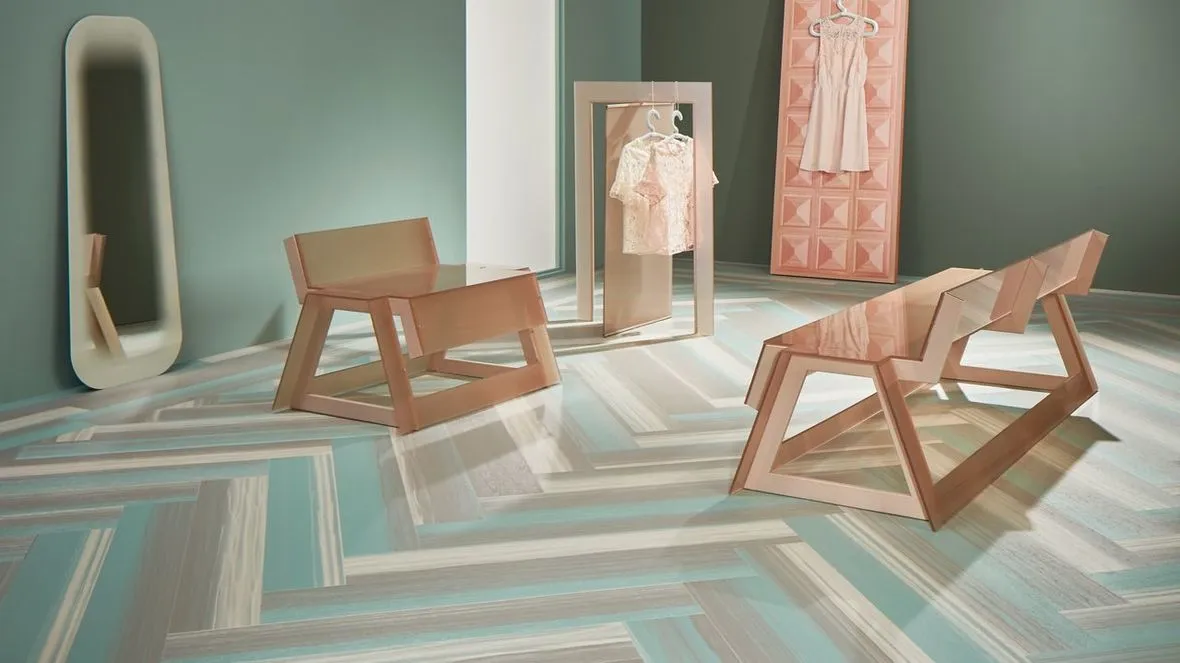
In today’s competitive economic environment, businesses are constantly looking for ways to stand out. Whether it’s unique branding or clever marketing campaigns, companies continually seek out opportunities to set themselves apart from the competition – particularly in the retail, hospitality and leisure sectors, where it’s all about attracting footfall.
Starting her design career as a freelance designer working with wall-coverings and textiles, our Head of Vinyl Design, Dorothé Kessels, has worked with Forbo for over 20 years. Fascinated by colours and the natural environment from an early age, travel, international influences and a love of nature inspire her work. Here, Dorothé takes a look at how the ever expanding possibilities of bespoke design are helping businesses stand out from the crowd and offer clients the next level in customer experience.

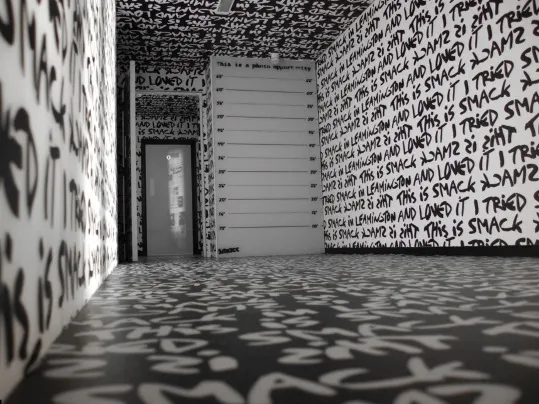
Naturally, this desire for differentiation extends to the interior design of commercial premises and there’s been a huge increase in the demand for products that can be customised or given a personal twist. New technologies such as digital or 3D printing are opening up a rich seam of design possibilities. For example, for wallcoverings, murals are gaining more interest and market share, as new digital printing techniques make them more accessible and cost effective – but it hasn’t always been this way.
Of course, up until the Industrial Revolution, all goods and materials were created by hand, meaning interior furnishings and finishes were characterised by artisanal quirks and irregularities. Nowadays we are seeing that industry is starting to embrace this individual aesthetic, not only in design but in other industries too, such as fashion. However, in design you can expect to pay over the odds for such hand-crafted ‘imperfections’.
In the flooring industry, the advent of mass-production techniques undeniably changed the face of manufacturing but it also resulted in a certain homogeneity, with standardisation allowing affordable products to be accessed by a much larger market. That’s not to say there haven’t been options available for designers seeking a more customised solution but, in general, achieving that bespoke aesthetic has required both time and money.
Recent innovations in manufacturing, however, have led to the emergence of several flooring products that feature randomised designs, which allow designers to create completely unique installations using an ‘off-the-shelf’ product. The appeal of this type of solution is that it answers the psychological need for differentiation, without the hefty price tag or long lead times required by some other bespoke commissions.
As mentioned earlier, this has particular significance for the retail, hospitality and leisure sectors, where the interior environment contributes heavily to the sensory experience of the customer. The look and feel of a shop, bar or restaurant profoundly influences the ability to attract and retain customers – even more so in today’s market, given the constant battle to tempt consumers away from online purchasing and into the physical high street store.
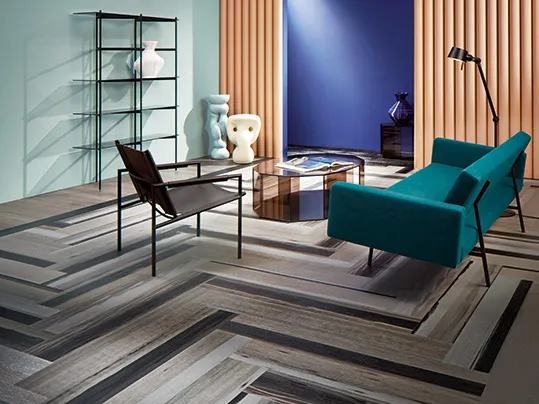
Choosing modular products with a random pattern or design is a quick-win way of ensuring each installation has its own identity, as no two projects will look quite the same. For example, in the product category Luxury Vinyl Tile (LVT) there is a new design language occurring.
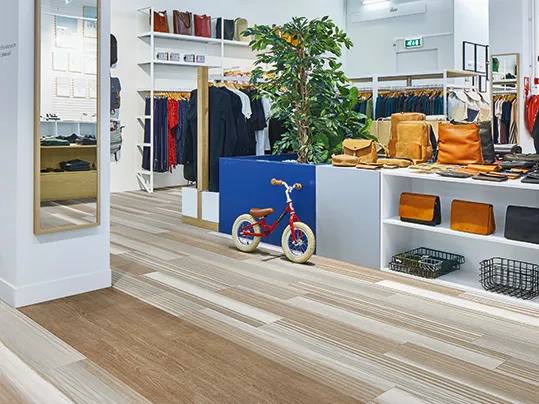
Forbo’s new Allura Fusion, is a collection that uses innovative colouring techniques to create a fresh look, with no pattern repeats. The trend collection features four plank and three tile designs, with every piece of the Allura Fusion range completely unique. No two planks or tiles are the same, resulting in an organic and truly individual aesthetic.
This is made possible by the innovative manufacturing technique, which combines traditional printing methods with free-flowing, coloured PVC streams to produce the 0.7mm wear layer. The result is a flowing, expressive appearance that gives designers the freedom to create truly individual installations with undeniable visual stand out, all of which contributes to the sensory experience of the customer.
What's more, Allura Fusion is also designed to be easily installed alongside our Tessera carpet tiles and Flotex flocked flooring tiles without the need for subfloor build-up or transition strips, meaning integrated flooring designs can be quickly and easily created.
Combining this type of floorcovering with more standard products extends the design opportunities even further, allowing for the creation of distinct zones, aiding in wayfinding around the premises. Mix and match colours, textures and patterns to create unique, distinct interiors.
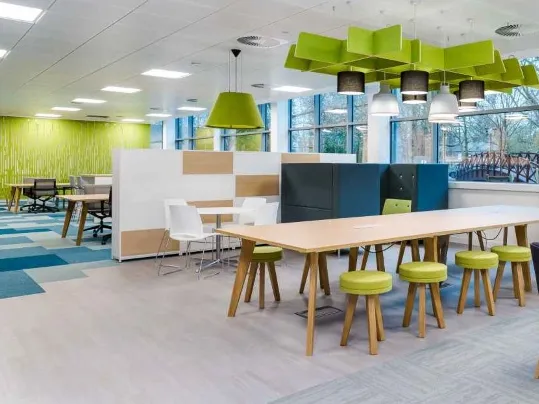
.webp)